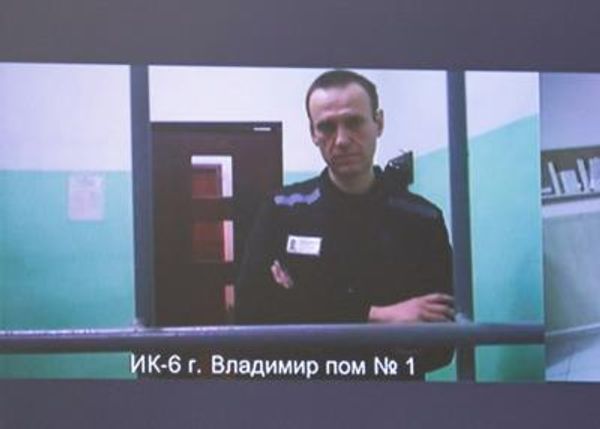
Many observers in Western and Central Africa watched with piqued attention as the Wagner Group mutiny unfolded in Russia, curious about its significance on the mercenary force’s vast operations on the continent.
Since 2018 when Wagner arrived in Central African Republic (CAR) to fight off a rebel uprising, the armed group has expanded its footprint, later launching operations in Mali, Sudan and Libya. For African governments struggling to deal with escalating domestic insecurity, Wagner became a lifeline.
After the mercenaries helped CAR’s President Faustin-Archange Touadéra in 2018 against rebel forces, Russian became an official language taught in the country’s schools, and Wagner leaders became dignitaries in the capital Bangui.
In Mali, the military lost patience in a decade-long collaboration with former colonial master France in tackling insecurity from armed groups linked to al-Qaeda and ISIL (ISIS) and signed up with Wagner instead.
But after last week’s attempted Wagner mutiny, a cloud is hovering over not only the armed group’s foreign activities, but also the bilateral relationships between Russia and African nations that employ the mercenary outfit.
Russian Foreign Minister Sergey Lavrov said last week that “several hundred servicemen” in CAR working as “instructors” at the behest of the government would continue their efforts.
Yabi Gilles, founder of West Africa Think Tank (WATHI), told Al Jazeera the comments came as no surprise.
“The declaration of Lavrov was a clear indication of what was quite obvious. Wagner is not just a mercenary company. Wagner is a company that has been tolerated by the Russian government and has been acting in the interest of Russia, especially outside of the country,” Gilles said.
“For Mali and CAR, what is important for is to have the assurance that cooperation with Russia will continue.”
‘Not sure what will happen’
Military options also exist if Wagner is pulled out of the continent as other private military contractors have begun operating in Africa in recent years.
“The managers of these new companies are former Wagner employees with a deep knowledge of Wagner’s activities in Africa, and the Russian state could easily use these men to help retake all of Wagner’s activities, especially in Central Africa,” said Charles Bouessel, senior analyst on Central Africa Republic for the International Crisis Group.
Still, the uncertainty has caused concern for governments reliant on Wagner’s security expertise.
“We have seen a little bit of stress from the authorities. We see this kind of stress because they are not 100 percent sure what will happen, whether Wagner will survive in the next few months or not,” said Bouessel.
But much like for the Kremlin, the Wagner rebellion has proved to be a cautionary tale for African governments.
African nations will now be extremely cautious as the Wagner revolt against Moscow could easily play out at home, said Bakary Sembe, regional director at the Timbuktu Institute Africa Centre for Peace Studies.
“They have to stop thinking about outsourcing their security. It is not a viable strategy and now, regarding the new situation, African countries will be more careful when it comes to using Wagner,” he said.
Despite Moscow’s assurances, Mali and CAR are in an uncomfortable position. “Mali and other countries that are linked to these non-state elements are now caught between Wagner’s weapons and Moscow’s wrath,” Sembe said.
West out, Wagner in
At Bamako’s request, French troops – welcomed in Mali in 2013 when the conflict began – have withdrawn. The United Nations peacekeeping force is also on its way out after the UN Security Council voted to immediately withdraw.
Analysts said it was resentment against France, previously the sole external influence in the region, for failing to stem the expansion of armed groups and supporting authoritarian regimes that opened the door for Wagner, led by the now-exiled Yevgeny Prigozhin.
“In Francophone countries, the presence of Russia is an expression of protest against France. It is a sign of revolt, but it has alienated them against the West,” Sembe told Al Jazeera.
“You have the French intervention in Mali with several operations and you have the … failure of France and international partners to support Mali to get out of the insecurity.”
With the UN force departing and Wagner destabilised, fear hovers over the delicate security atmosphere in Mali and its impact on the already beleaguered Sahel region.
“Clearly, we must realise these countries don’t have their own agency. And at the same time, it is also a reality for these countries – they don’t have the willingness to carry out internal reforms so that they can really be in charge of their own security,” Gilles said.
While Wagner was invited in, the mercenary force has been accused of involvement in human rights abuses in Africa. The United States has designated Wagner as a “transnational criminal organisation” responsible for widespread abuses.
A change of guard will likely not reverse the status quo. “I think it won’t change substantially the method of accountability with Wagner, the activities will be certainly maintained in this kind of form,” Bouessel said.
“Whether it is Prigozhin or another war entrepreneur, it does not really matter. It is more about who is going to control the company.”






